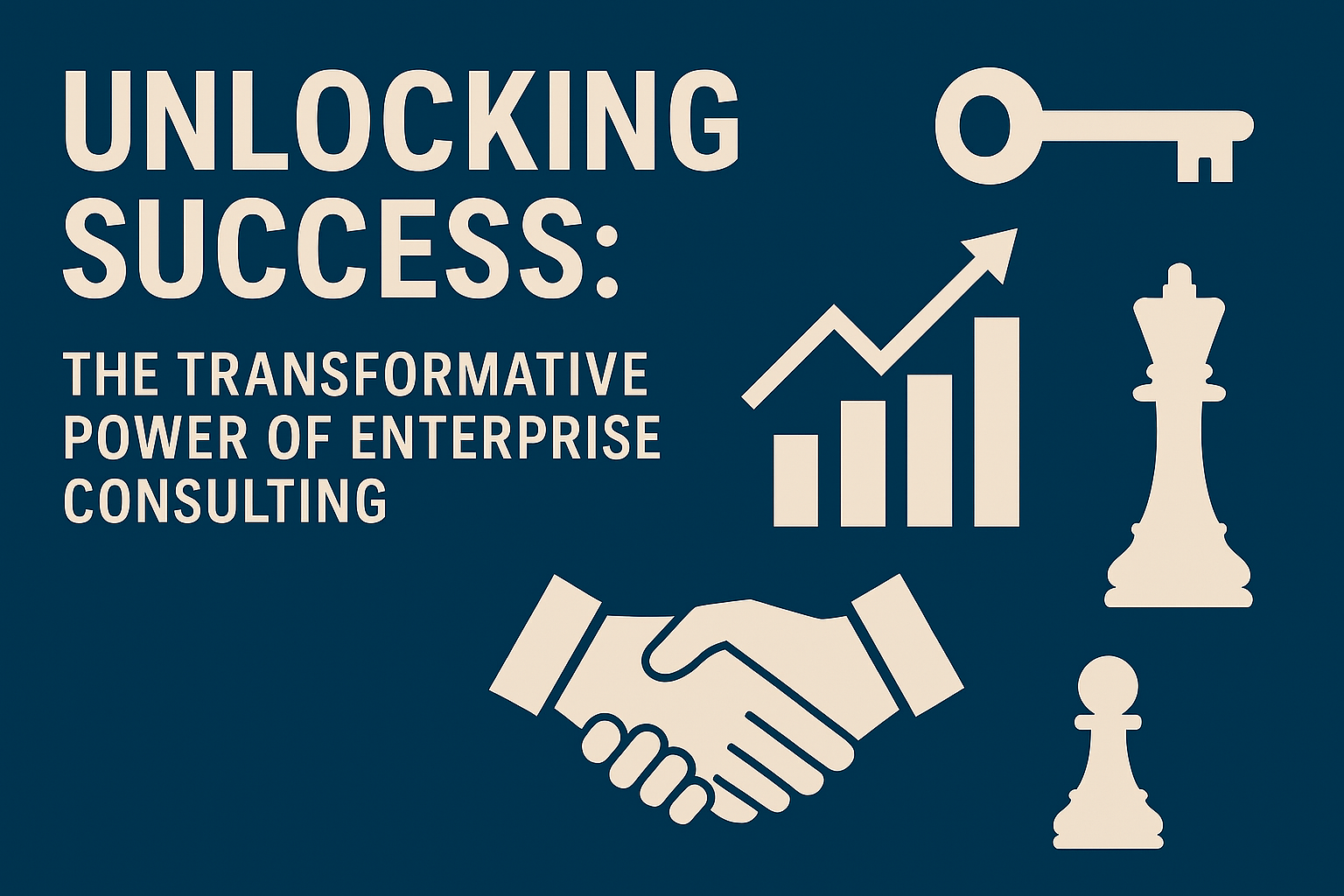In today’s hyper-competitive business landscape, enterprises are not just looking to survive—they’re aiming to thrive. As organizations scale, they face increasingly complex challenges, from operational inefficiencies to navigating digital transformation. Enter enterprise consulting: the key to unlocking strategic growth and operational excellence.
What is Enterprise Consulting?
Enterprise consulting involves specialized advisory services tailored to help large organizations overcome their unique challenges. Whether it’s optimizing supply chains, implementing cutting-edge technology, or redesigning organizational structures, enterprise consultants bring expertise, fresh perspectives, and proven methodologies to the table.
Why is Enterprise Consulting Essential?
- Strategic Alignment: Enterprises often struggle with aligning diverse departments toward a unified goal. Consultants help ensure that strategies are cohesive and aligned with the overall business objectives.
- Digital Transformation: With technology evolving at breakneck speed, staying ahead requires more than just adopting new tools. Enterprise consultants guide businesses through digital transformations by integrating innovative technologies seamlessly into their operations.
- Cost Optimization: Inefficiencies can silently erode profitability. Consultants specialize in identifying cost-saving opportunities while maintaining high performance and quality standards.
- Change Management: Organizational change is hard. Whether it’s a merger, restructuring, or cultural shift, enterprise consultants provide frameworks to manage transitions smoothly, reducing disruption and resistance.
Case Studies: Consulting in Action
- Fortune 500 Tech Company Revamps Operations A global tech giant faced declining customer satisfaction due to delayed product launches. By partnering with an enterprise consultancy, the company streamlined its product development lifecycle, cutting time-to-market by 30% while improving product quality.
- Retail Chain Embraces Digital Transformation A retail chain struggling with outdated systems enlisted consultants to implement a data-driven inventory management system. The result? A 20% reduction in inventory costs and a significant boost in sales.
Key Areas Where Enterprise Consulting Makes a Difference
- Business Process Reengineering: Analyzing and redesigning workflows to eliminate inefficiencies and improve productivity.
- Technology Integration: From ERP systems to AI-driven analytics, consultants help organizations adopt the right tools to stay competitive.
- Leadership Development: Grooming leaders to drive organizational success and foster a culture of innovation.
- Market Expansion Strategies: Identifying new growth opportunities, entering new markets, and building scalable models for expansion.
Choosing the Right Consulting Partner
The success of a consulting engagement largely depends on selecting the right partner. Here are some key factors to consider:
- Industry Expertise: Look for consultants with a proven track record in your sector.
- Customized Solutions: Avoid one-size-fits-all approaches; seek consultants who tailor their strategies to your unique needs.
- Collaboration: Effective consultants work closely with internal teams, fostering knowledge transfer and ensuring long-term success.
The Future of Enterprise Consulting
As businesses continue to face unprecedented challenges—from global economic shifts to technological disruption—enterprise consulting will play an even more critical role. Emerging trends like sustainability consulting, AI-driven decision-making, and resilience planning are shaping the next wave of consultancy services.
Final Thoughts
Enterprise consulting is not just about solving problems; it’s about unlocking potential. By leveraging the expertise of seasoned consultants, organizations can navigate complexity, seize new opportunities, and position themselves for sustained success in an ever-evolving marketplace. The question isn’t whether you need enterprise consulting—it’s whether you can afford to move forward without it.

